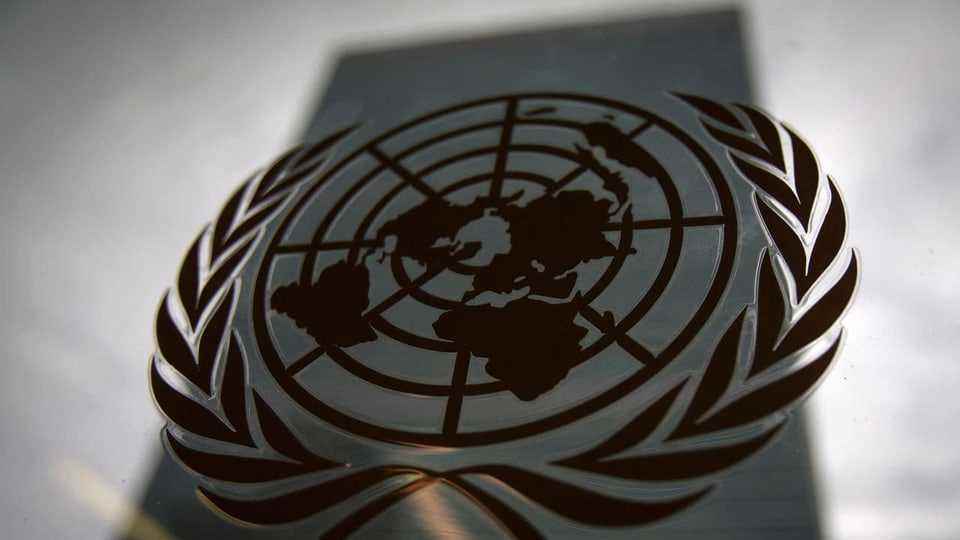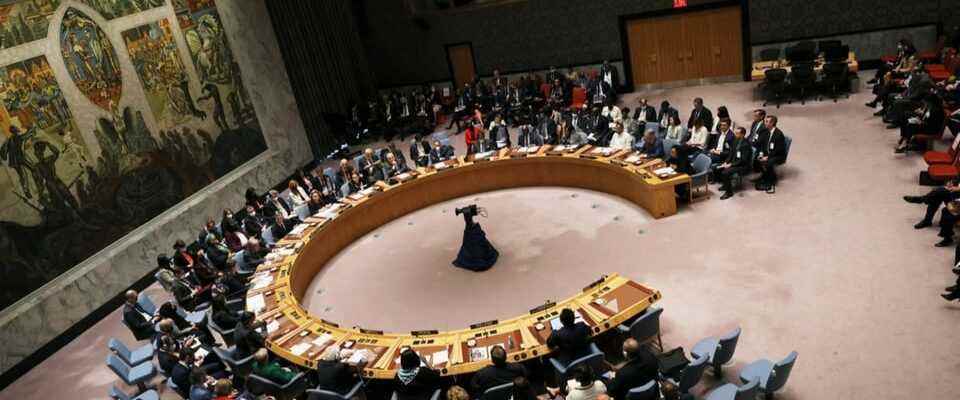contents
Switzerland wants to be elected to the UN Security Council today. But he is under criticism. Ten questions and answers.
Why is there advice? After the Second World War, with its more than 60 million dead, the victorious states wanted to create an organization that would secure peace and prevent wars. That is why the United Nations was founded in 1945, with the Security Council as the most powerful body.
What powers does the Council have? For example, he can send a peacekeeping mission with the consent of two warring parties. Or enacted against one of the two economic sanctions. He can also assign an armed force to stop an attacking state. Finally, he can set up a court to put those responsible for the war behind bars.
Legend:
The UN Security Council meets in this round.
Reuters
How is the council composed? It has 15 member states. The five victorious states of the Second World War are always present: China, France, Great Britain, Russia and the USA. There are also ten non-permanent members. They are elected by the 193 UN countries for a two-year term. The world region “Western Europe”, to which Switzerland belongs, is represented by two non-permanent members.
Who decides? Important decisions must be approved by nine of the 15 member states, with the permanent five having the right of veto. The deliberations in the meeting room in New York are chaired by the member state currently holding the month-long presidency. The states are represented by a diplomat, sometimes also by the foreign minister or the head of government.
What are the biggest weaknesses? The right of veto means that important decisions can only be made if neither the western veto powers nor China or Russia have any objections. As a result, the Council is often unable to make decisions. In addition, the UN has no police or army. The Security Council is dependent on states making troops available to it for a military operation.
What were the biggest successes? After the end of the Cold War, the veto states worked together in a spirit of trust in the Security Council. In 1990, for example, the council decided on a military operation against Iraq in order to stop its attack on Kuwait. Or he created the International Criminal Tribunal for the former Yugoslavia in 1993, which put several war criminals in prison.

Legend:
The UN Security Council meets at the headquarters in New York – with the distinctive skyscraper.
Reuters
What were the biggest failures? The Security Council has repeatedly been criticized for having acted too late or hesitantly, for example against the genocides in Rwanda in 1994 or Bosnia-Herzegovina in 1995. And if one of the five veto states is waging war itself or violating international law, the Council is powerless. For example, he did nothing to stop the US illegal invasion of Iraq in 2003.
What role does the Council play today? The growing tensions between the major powers USA, Russia and China have meant that the Security Council has continued to lose influence in recent years. This can be seen both in the Syrian war and now in the Ukraine war.
Why does Switzerland want to be on the Council? As a non-permanent member in 2023 and 2024, Switzerland wants to make proposals and mediate in disputed issues under the motto “A plus for peace”. But Swiss diplomacy is also about making contacts at the highest level and thus being able to better represent your own interests.
Why isn’t the Council made more capable of making decisions? In order for him to really be able to make decisions, the right of veto would have to be abolished. Two-thirds of the UN states would have to agree to this, including the five veto powers. But they do not want to give up their rights and their influence.
